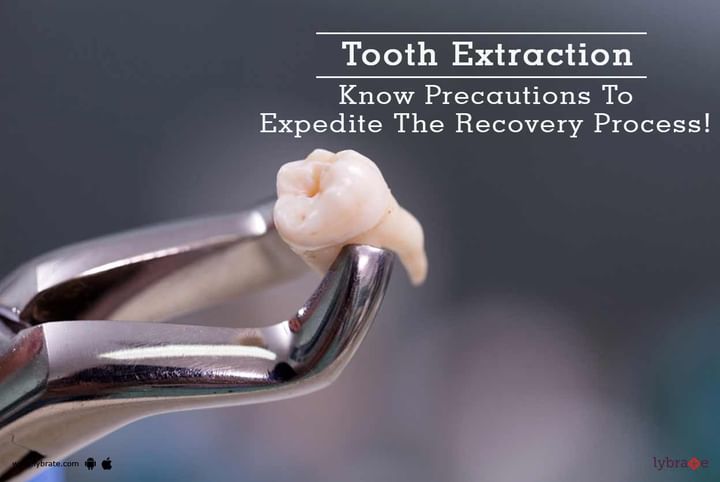Tooth Extraction - Know Precautions To Expedite The Recovery Process!
A healthy set of teeth is essential for good living. However teeth problems are widespread and you are susceptible to it at any age, at any time. Though there are medications available for tooth problems, sometimes extraction of the tooth remains the only plausible solution.
You may have to undergo tooth extraction for multiple reasons. Some of them are:
1. Unaligned teeth
In case you are suffering from unaligned teeth, chances are that you may suffer from what in technical terms is known as "crowded mouth." In such a situation you have difficulty in eating as there is not enough room for the teeth in the mouth. Extraction of tooth, in this case, remains the only way to rectify it and align the teeth in a better fashion.
2. Infection
Sometimes if you suffer from a tooth infection, it tends to quickly spread to the pulp, affecting and damaging the blood vessels and different nerves. Though medications are available, if the intensity of the infection increases, extraction of tooth remains the only option.
Procedure -
There are different steps that are involved in the extraction of teeth. They are:
1. Local anesthesia
Like all other surgeries, administering a local anesthesia is the first step. If you are undergoing a tooth extraction, the dentist or the surgeon will inject an anesthesia that will create numbness and soothe you of the ensuing pain.
2. Cutting away gum and bone tissues
After the anesthesia, the dentist will proceed to extract the infected tooth. In order to this, the doctor cuts away the gum and the tissues covering the tooth. After the root of the infected tooth has been exposed, the dentist would then with the help of forceps, sever it from the jaw.
After the surgery, you must observe certain precautions to expedite the recovery process. Some of them are:
1. Take painkillers
After the tooth extraction, the possibility of suffering from an ensuing pain is incredibly high. Therefore, in most cases the dentist prescribes certain painkillers and you must take them regularly.
2. Change the dressing
The operated area will be covered with bandages to preclude any infection. However, the dressing must be changed from time to time. If the same dressing remains for a long time, chances of an infection increase.
3. Complete rest
After the extraction, you must take complete rest and not engage in any form of physical activity.
4. Avoid certain foods
Just after the surgery, the operated area remains tender. Therefore, you must eat food that requires less effort to chew like soup, pudding, ice cream etc. You must also abstain from smoking and drinking for some time.



+1.svg)
